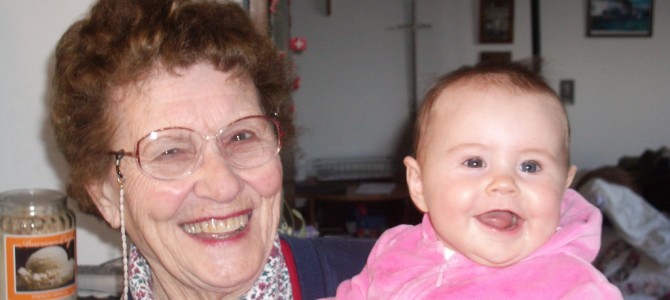Last week The Atlantic published the article “Why I Hope to Die by 75” by Ezekiel Emanuel, a former adviser to President Obama on health care and one of the primary designers of the Affordable Care Act. In it, Emanuel outlines his reasons for deciding he will no longer accept most kinds of medical treatment when he reaches age 75. Chief among those reasons is his conclusion that once someone starts to slow down in his mind and body the value of his life begins to decrease, along with the motivation for prolonging it. It is a tragically utilitarian view of life that equates worth with productivity.
Not surprisingly, there has been an onslaught of responses pointing out the flaws in Emanuel’s argument, in particular challenging his claim that as a person ages the chance of his making a meaningful contribution to society substantially declines while the likelihood of his being a burden to someone increases. Many exceptions to that rule have been pointed out: Ronald Reagan, Benjamin Franklin, Sophocles, Gandhi, Nelson Mandela. It is a good point, and an accurate one. But those who attempt to refute Emanuel’s argument by providing counter-examples to some extent buy into his premise that worth comes from accomplishment and overlook the truth that sometimes the greatest contribution one can make is that borne of weakness.
The Blessing of Burdens
Every parent knows that one of the blessings of parenthood is its capacity for turning a selfish human being who tends to think primarily of himself into someone who is instinctively willing to put another human life above his own. For most people (certainly there are exceptions) parenthood is the supreme character-education course: when we become parents we truly begin to learn what love and sacrifice are all about. The newborn, in his utter dependence and helplessness, is a gift of immeasurable worth, not only because his life has intrinsic value, but because in his very existence he makes better people of his parents. We are more human, more moral, more fully developed creatures because of the manner in which we were designed to procreate and rear our young. Unlike the majority of the animal kingdom, in which offspring need their parents for only a short time (if at all), human beings require their parents’ care for a good one-fourth to one-fifth of our lifetimes. During those 18 or so years that parents directly oversee and guide their children’s lives, the parents benefit as much as the children, by virtue of being so deeply needed by one who is weaker.
As we age the same thing happens again, but in reverse. The children who were once cared for become the ones who care for their parents. And as they do so, they get another chance to grow in compassion, responsibility, care, and selflessness.
To Love My Mother
My 84-year-old mother lives with me. She has done so for more than five years now, and it has not been easy. She is not bedridden, nor does she suffer from a debilitating illness. But she is old, and old age, as the saying goes, is not for the faint of heart. My mother has pain and she forgets things. She can be quite negative. She is not very active, nor is she a fountain bubbling over with wisdom day in and day out. She is tired, and spends her days watching television, doing crossword puzzles and Sudoku, and taking naps in her chair. But her mere presence in our house is a blessing because of what it requires of those around her.
True, shuttling to doctors’ appointments, answering the same question for the umpteenth time in one day, and ongoing responsibility for her care are not easy things, and sometimes bring out the worst in me. Not a day goes by that I don’t find myself wishing I had been more patient, more respectful, and more loving. In my interactions with my mother I am regularly reminded of the depth of my own selfishness. The truth is, I don’t like being inconvenienced. I don’t like having to repeat myself. I don’t like taking time out of my day to take her to the doctor. But as I repeatedly come to face with my own shortcomings, I am kept humble. I am reminded that I, too, am a weak human being who needs others. Her life provides me the opportunity to serve and grow, and my children the opportunity to do the same as they witness firsthand what it means both to be old and to take care of the old. Through it all, we continue as a family to learn about forgiveness, respect, patience, and honoring others.
Emanuel, in making the decision to deny himself possibly 5, 10, or 20 additional years of life, is also choosing to potentially deprive his children, and others, of the privilege of interacting with and caring for him beyond the peak of his productivity. It is remarkable that a person in his seventies could inaugurate the ending of the Cold War or serve as ambassador to France. But it is also remarkable what can be contributed from the confines of a rocking chair while saying not a word.









